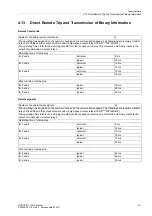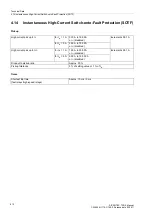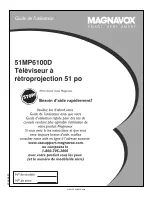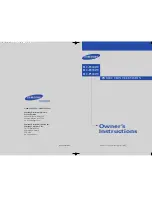
Technical Data
4.22 Circuit Breaker Failure Protection
SIPROTEC, 7SD5, Manual
C53000-G1176-C169-5, Release date 02.2011
625
4.22
Circuit Breaker Failure Protection
Circuit breaker monitoring
Initiation conditions
1)
Via binary inputs
Times
Stub Fault Protection
Pole Discrepancy Supervision
Current flow monitoring
for
I
N
= 1 A
0.05 A to 20.00 A
Increments 0.01 A
for
I
N
= 5 A
0.25 A to 100.00 A
Zero sequence current monitoring
for
I
N
= 1 A
0.05 A to 20.00 A
Increments 0.01 A
for
I
N
= 5 A
0.25 A to 100.00 A
Dropout to pickup ratio
Approx. 0.95
Tolerance
5 % of set value or 1 % of nominal current
Monitoring of circuit breaker auxiliary contact position
for 3-pole tripping
binary input for CB auxiliary contact
for 1-pole tripping
1 binary input for auxiliary contact per pole or
1 binary input for series connection NO contact and NC contact
Note:
The circuit breaker failure protection can also operate without the indicated circuit breaker auxiliary contacts, but the func-
tion range is then reduced.
Auxiliary contacts are necessary for the circuit breaker failure protection for tripping without or with a very low current flow
(e.g. Buchholz protection) and for stub fault protection and circuit breaker pole discrepancy supervision.
For circuit breaker failure protection
Internal or external 1-pole trip
Internal or external 3-pole trip
Internal or external 3-pole trip without current
Pickup time
Approx. 5 ms with measured quantities present
Approx. 20 ms after switch-on of measured quantities
Dropout time, internal (overshoot time)
≤
15 ms at sinusoidal measured values,
≤
25 ms maximal
Delay times for all stages
0.00 s to 30.00 s;
∞
Increments 0.01 s
Tolerance
1 % of setting value or 10 ms
With signal transmission to the opposite line end
Time delay
0.00 s to 30.00 s;
∞
Increments 0.01 s
Tolerance
1 % of setting value or 10 ms
Initiation criterion
Not all poles are closed or open
Monitoring time
0.00 s to 30.00 s;
∞
Increments 0.01 s
Tolerance
1 % of setting value or 10 ms












































